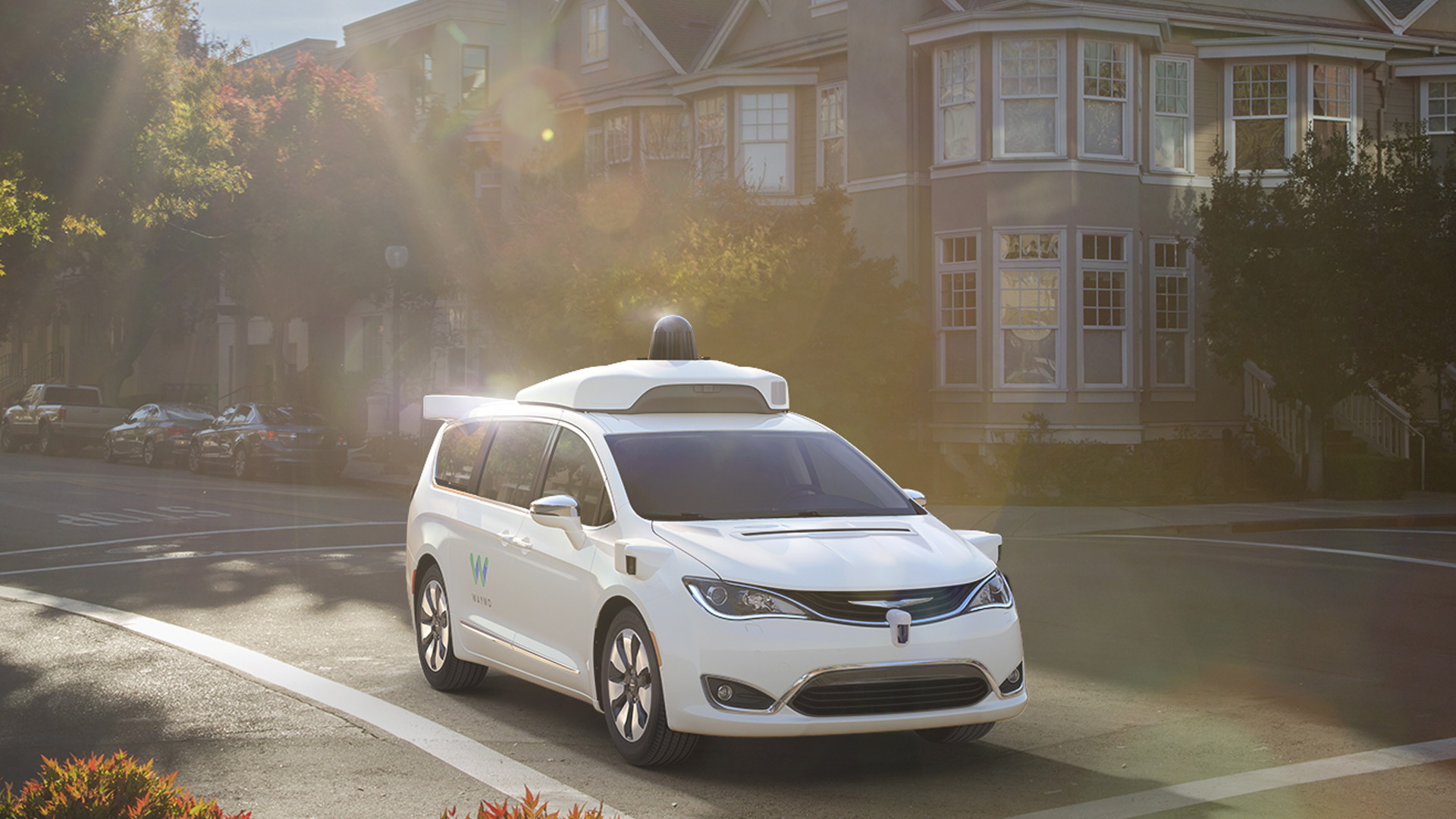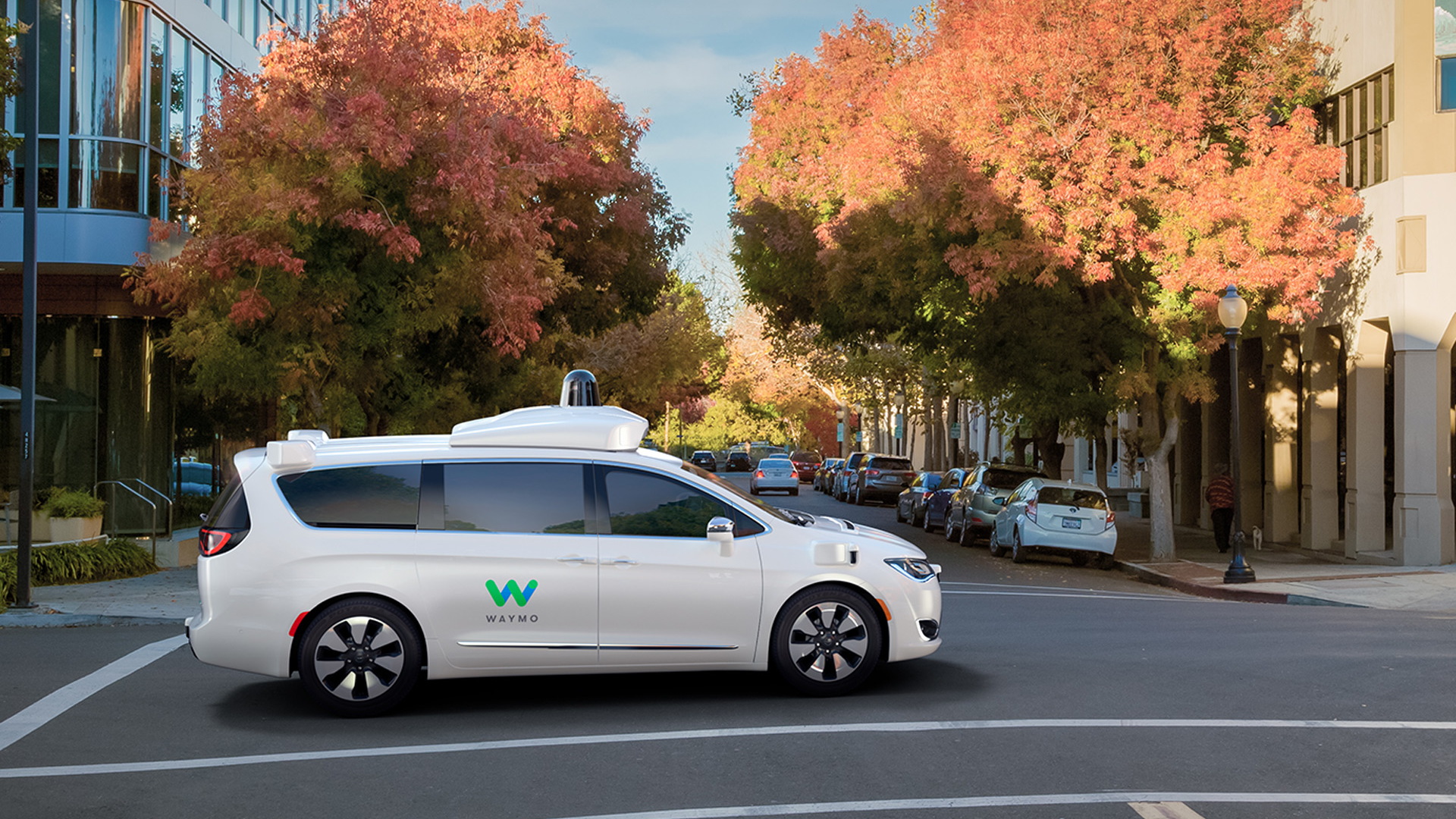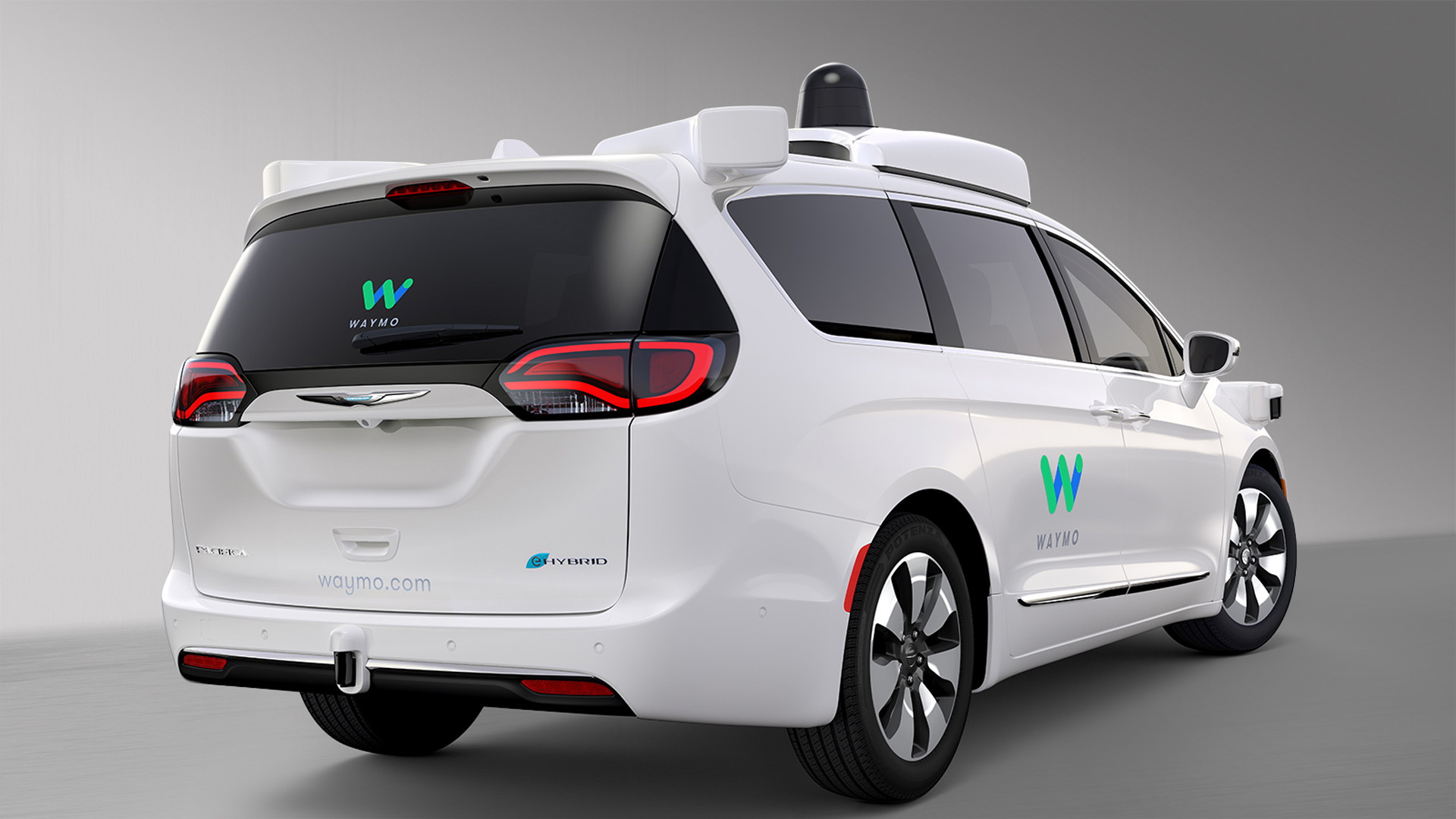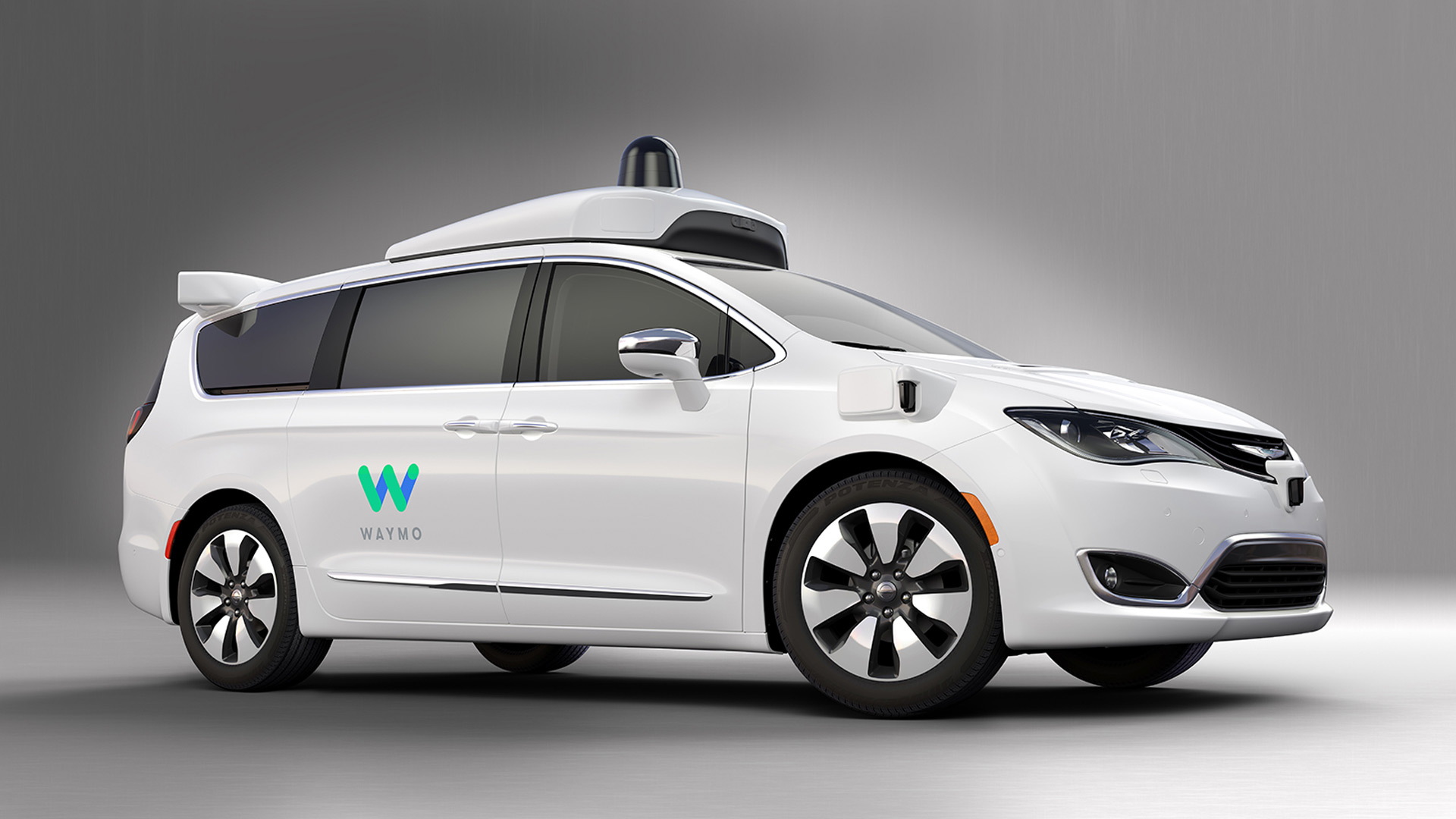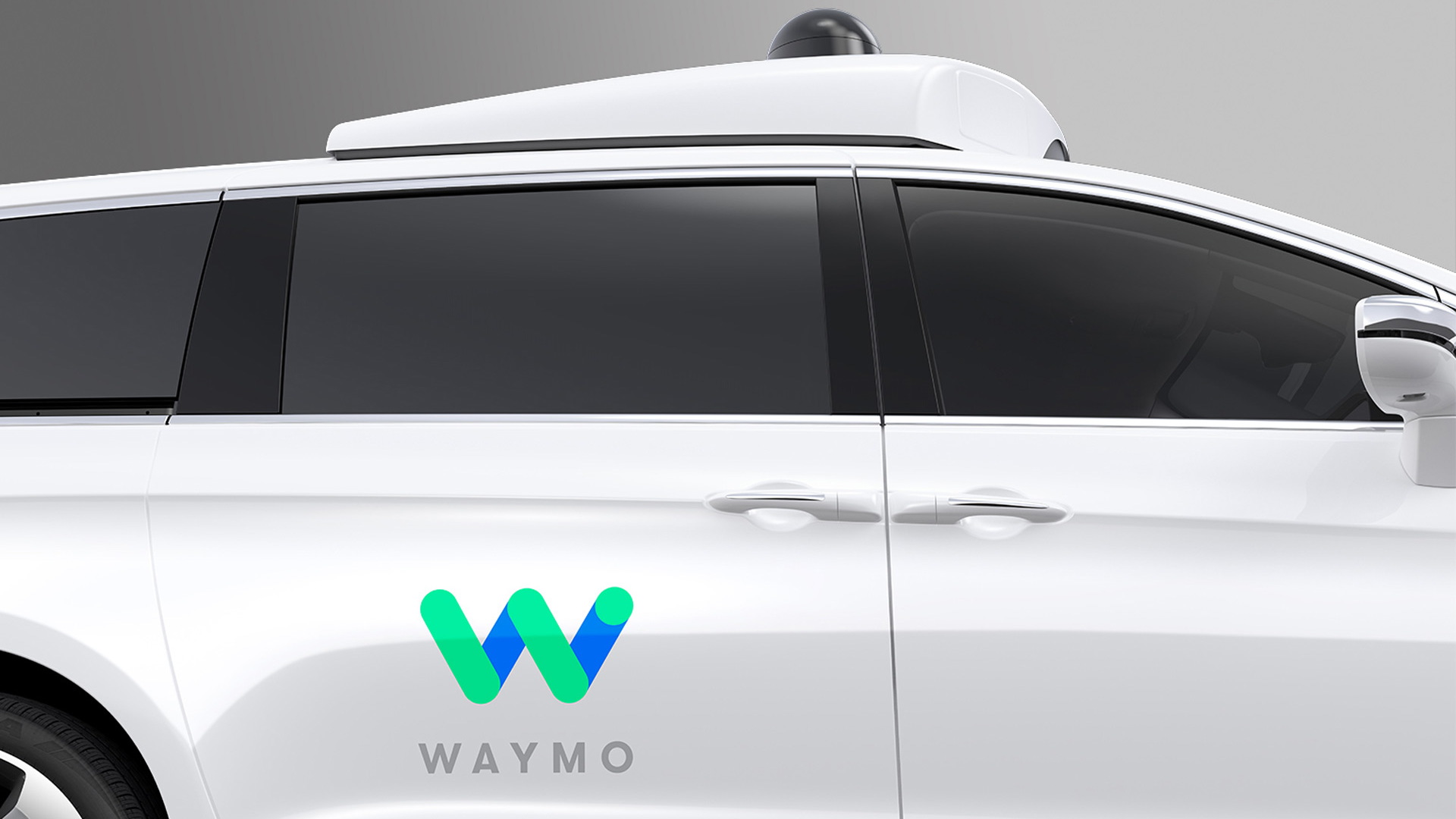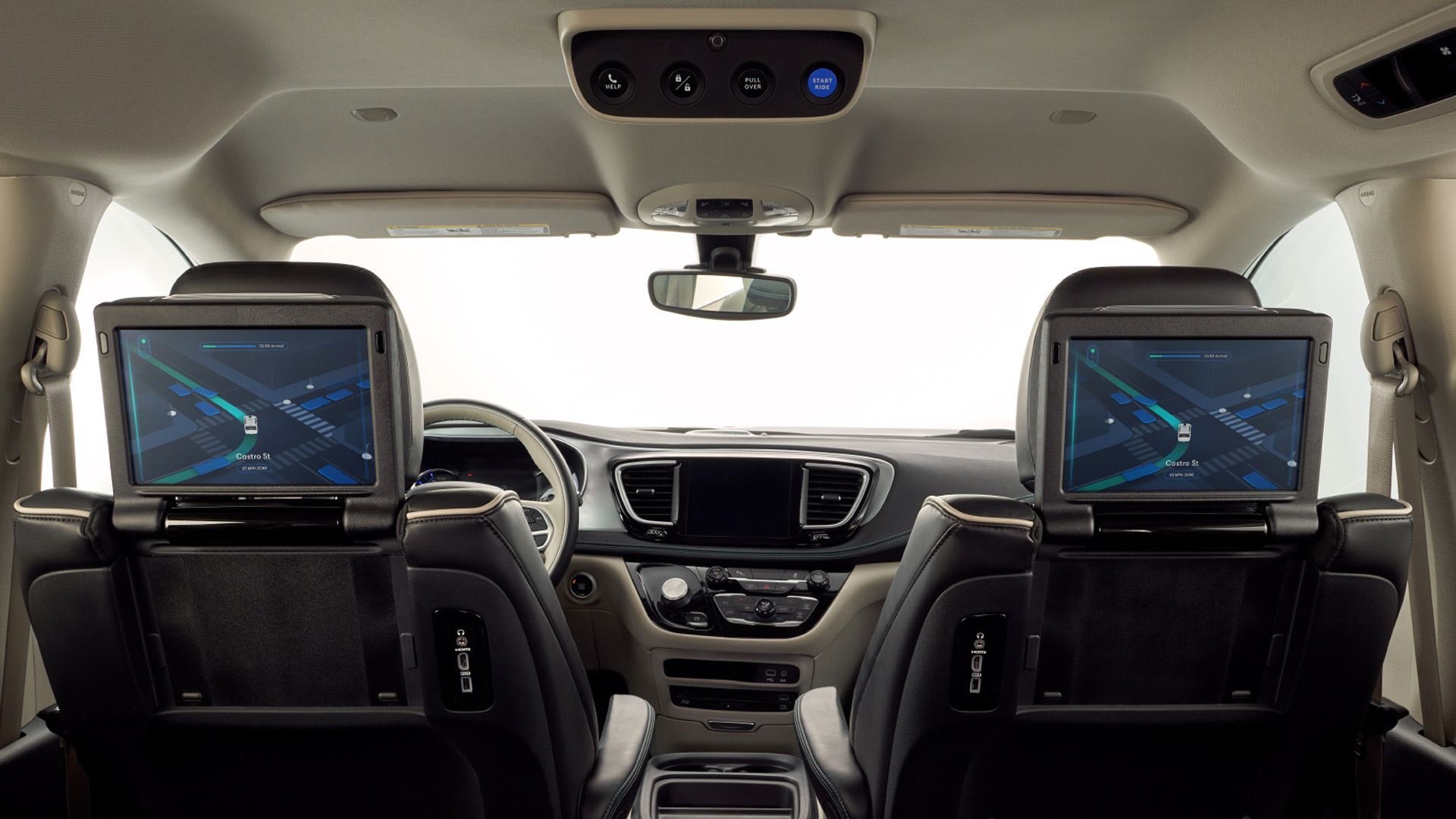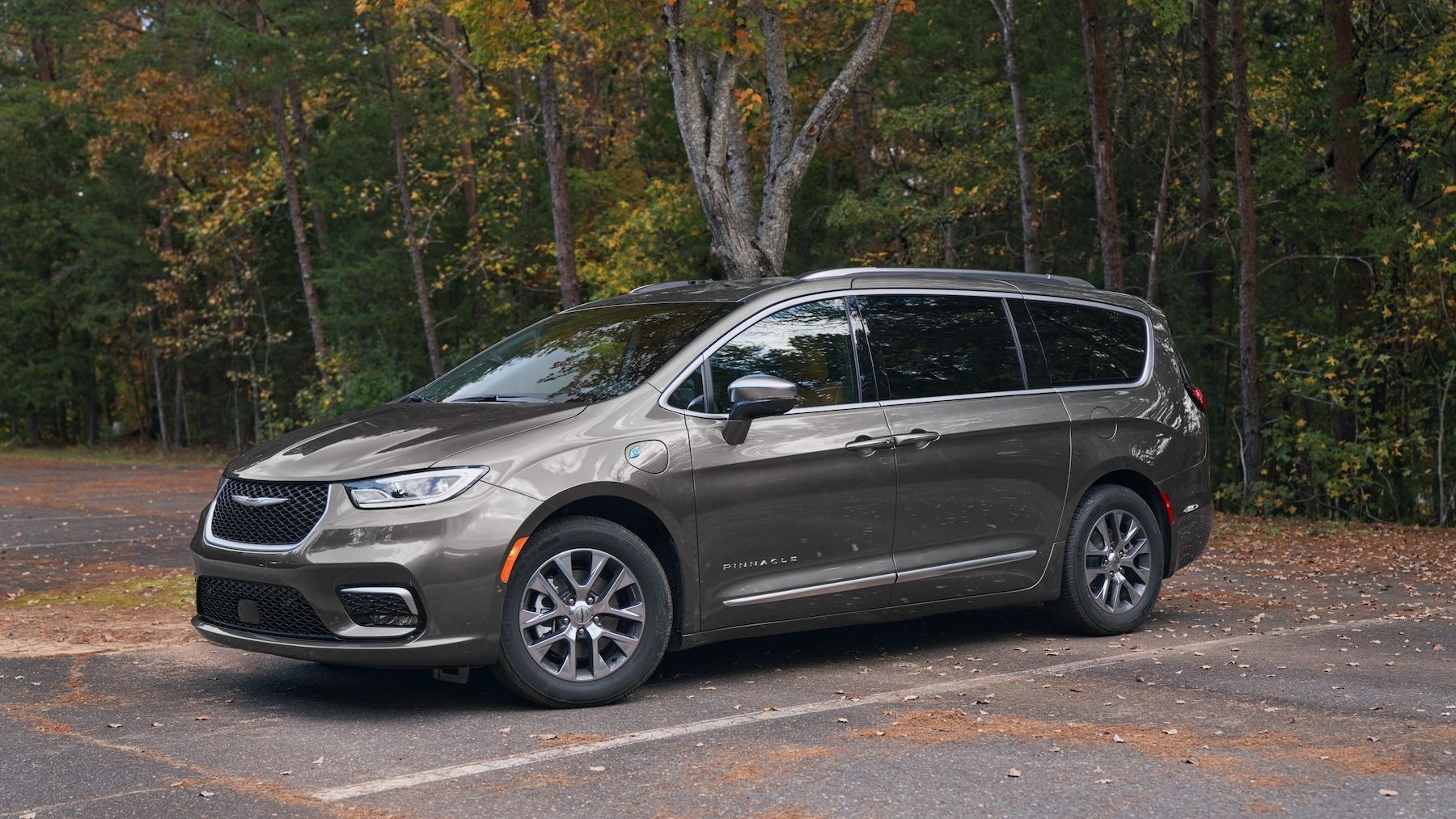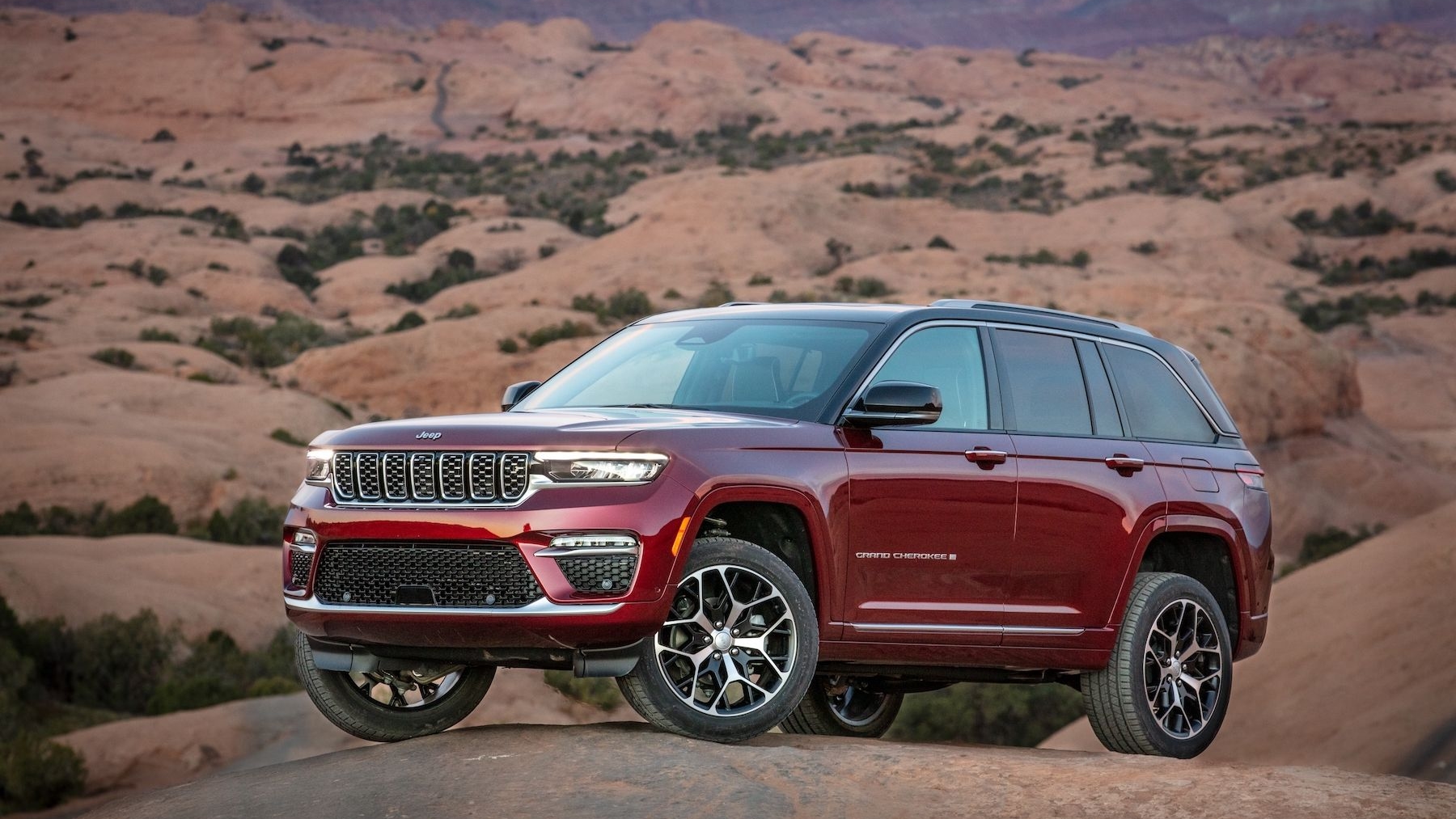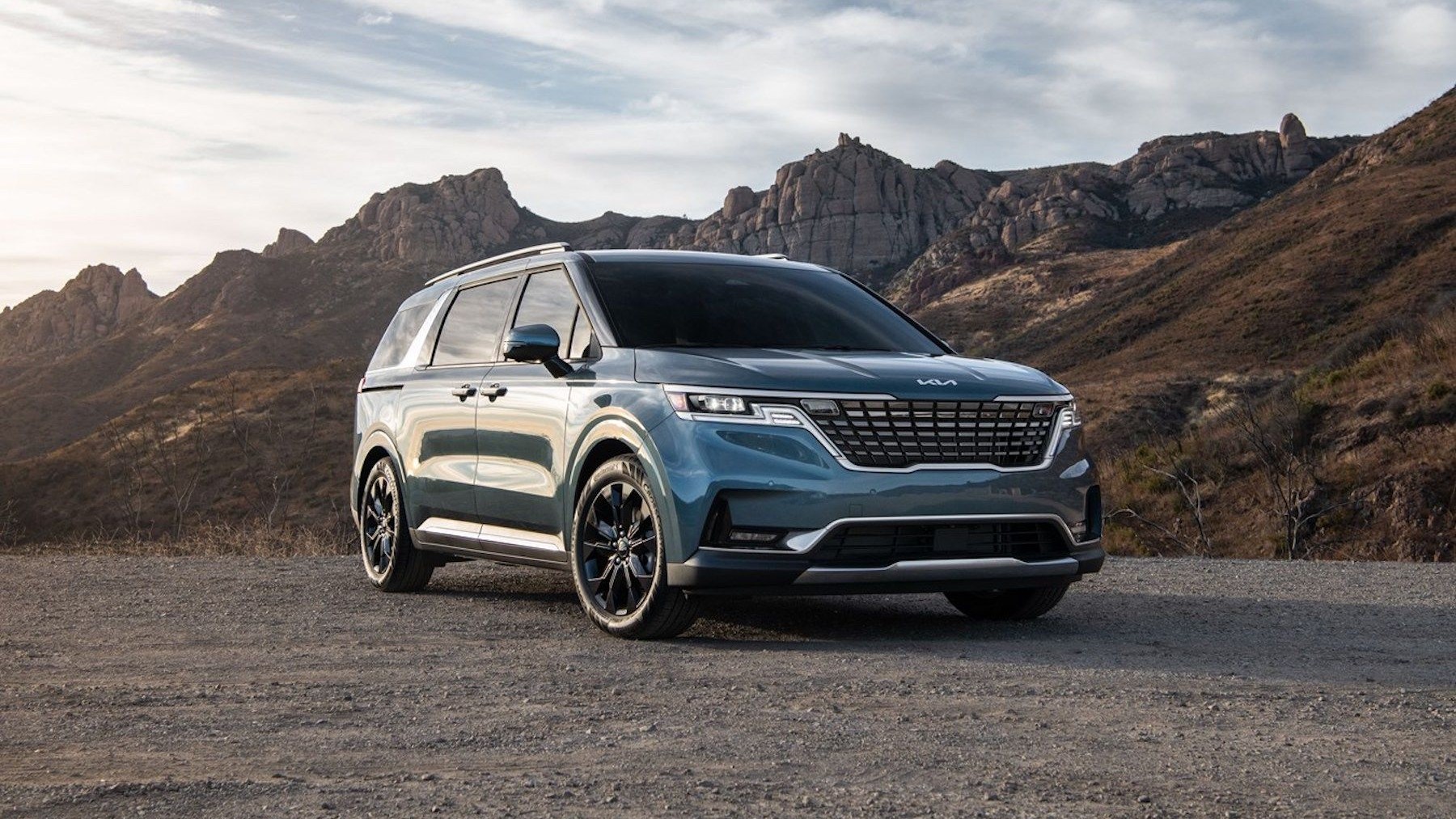Waymo is making huge strides in the race to develop a safe and robust self-driving taxi service.
The Alphabet-owned company formerly known as the Google Self-Driving Car Project on Tuesday announced it was ordering “thousands” of Chrysler Pacifica Hybrids pre-fitted with all the various sensors, software systems and computing hardware required for self-driving capability.
Fiat Chrysler Automobiles has been supplying the hybrid minivans for Waymo's test fleet since 2016, initially with a 100-vehicle deployment and 500 more added in 2017. Controlling the cars is a self-driving system developed in-house at Waymo since 2009.
Waymo's self-driving cars have already racked up more than 4.0 million miles driving around Phoenix, Arizona, many of those without anyone sitting behind the wheel. The company is now confident a self-driving taxi service open to the public can be deployed in Phoenix during the course of 2018. And more U.S. cities are to follow, hence the need for the extra vehicles.
Waymo says it's tested its self-driving cars in 25 cities across the U.S., including Atlanta, San Francisco, Metro Detroit, Phoenix and Kirkland, Washington.
“With the world’s first fleet of fully self-driving vehicles on the road, we’ve moved from research and development, to operations and deployment,” Waymo CEO John Krafcik said on Tuesday.
Waymo's self-driving cars are at Level 4 capability. This level of capability means the cars can operate on their own for extended periods of time, though within set conditions. Those conditions typically include requirements of highly detailed map data and non-severe weather. Crucially, a Level 4 car has the ability to bring itself safely to a stop when it encounters an environment outside of its set conditions.
Although a human won't be in the driver's seat of Waymo's self-driving cars, an engineer will ride with users at the service's inception. Eventually, though, Waymo will remove the engineer as well. At this point passengers will rely on a button to stop the car should things get out of hand. And digital screens mounted to the back of headrests will display the current route and other key information.
The ultimate goal in the self-driving car race is a Level 5 car. This is a car that can operate on its own in the same conditions expected of a human.
General Motors is another leader in the self-driving car space. The automaker in January unveiled a self-driving Chevrolet Bolt EV devoid of a steering wheel and pedals. The plan is to start testing the cars on public roads in 2019, though there a number of new regulatory approvals that need to be passed due to the lack of a steering wheel and pedals in the cars.
